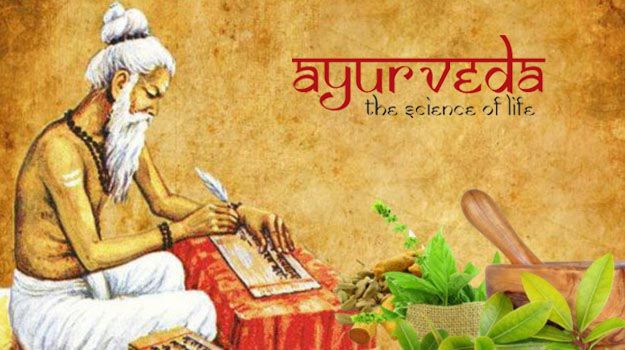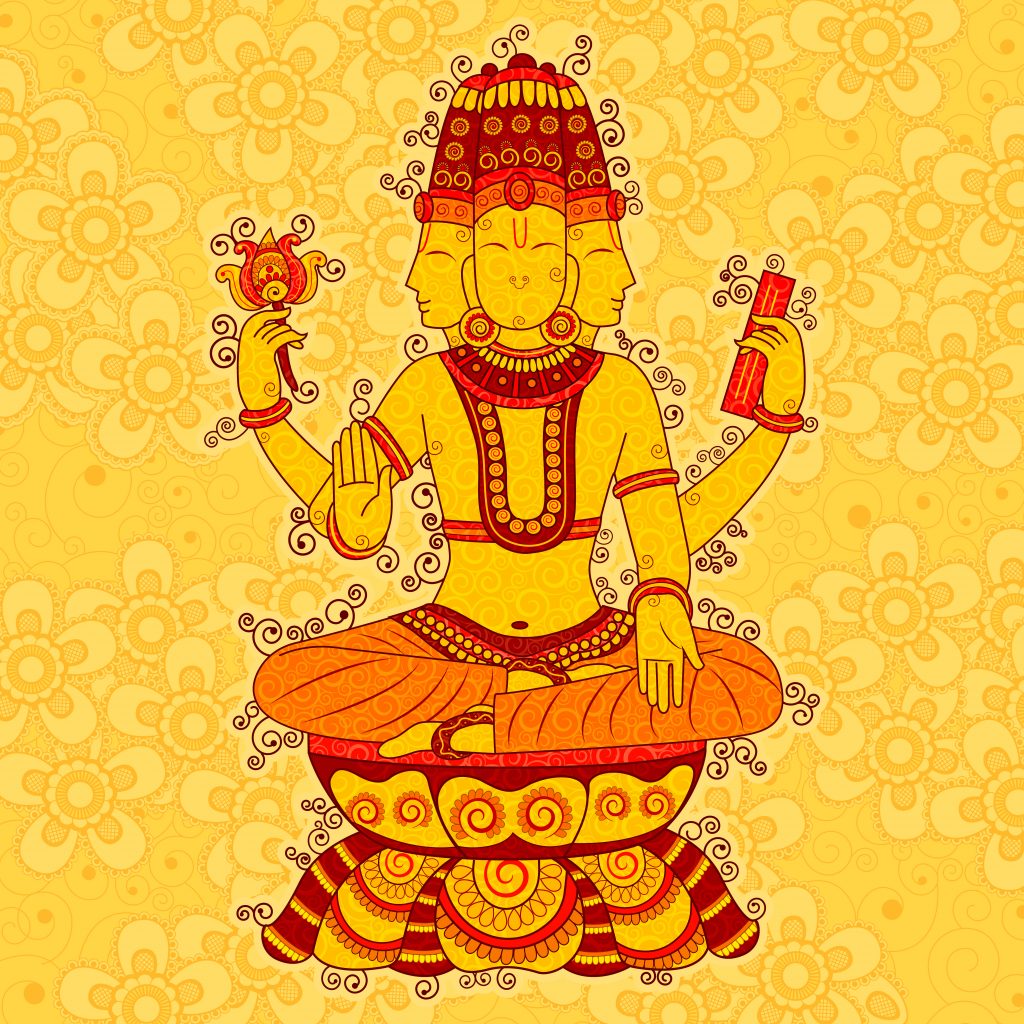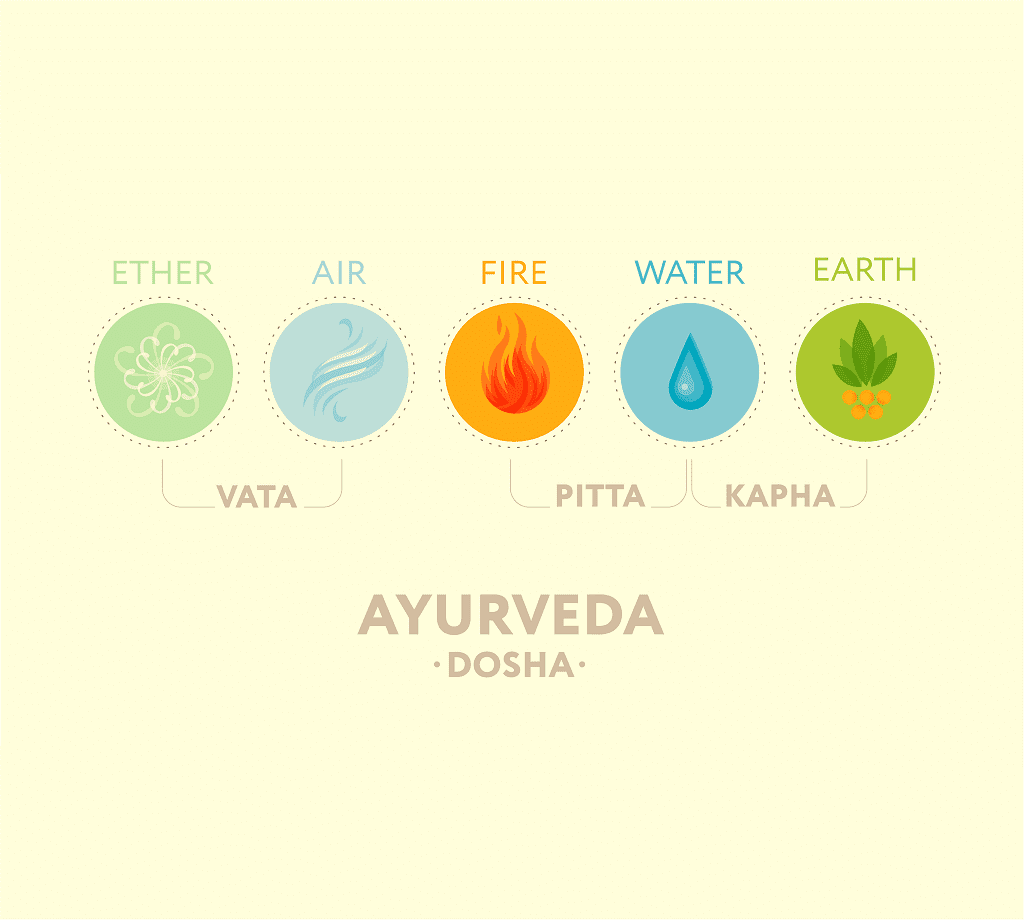
The knowledge of Ayurveda was passed on orally through a lineage of sages in India until it was collated into text more than five thousand years ago. The oldest known texts on Ayurveda are the Charaka Samhita, Sushruta Samhita, and the Ashtanga Hrudaya. These texts detail the affect that the five elements found in the cosmic system – earth, water, air, fire, space – have on our individual system, and expound on the importance of keeping these elements balanced for a healthy and happy life. The dosha affects not just the shape of one’s body but also bodily tendencies (like food preferences and digestion), and the temperament of one’s mind and emotions. For example, the earth element in people with Kapha dosha is evident in their solid, sturdy body type, their tendency for slower digestion, their strong memory, and their emotional steadiness. Most people’s prakriti is made up of a combination of two doshas. For example, people who are “Pitta Kapha” will have the tendencies of both Pitta dosha and Kapha dosha, with Pitta dominating. By understanding the qualities of our natural constitution we are better able to do what is needed to keep ourselves in balance.
Ayurveda places great importance on one’s pathya, or lifestyle (eating habits and daily routine). Ayurveda also provides guidance on how to adjust our lifestyle based on the change of seasons. There has been a phenomenal increase in the demand for the specialized therapies of Ayurveda particularly panchakarma, not only for the treatment of diseases but also for preventive & promoting health. As a result many health centers and resorts are providing these therapies but it should be done only by a proper examination, proper planning, and proper guidance. We focus on restoring the natural harmony of your body and mind. During the first consultation at Swastha; our Ayurveda center, our doctors will ask for your medical history and do the examinations based on Ayurveda ( Darshana- Inspection and observations, Sparshana- Palpation, percussion, auscultation, Prashna – Interrogation like general state of health with special focus on your lifestyle, diet, habits, and environmental surroundings).

Mythological Origin of Ayurveda
The origin of Ayurveda dates back to around 5000 years and is believed to have evolved from the eternal consciousness of Lord Brahma, the creator of the Universe. Brahma imparted the divine wisdom of health and life to his son, Daksha Prajapati, who then passed it on to Ashwini Kumaras, the twin Divine Physicians of Hindu Mythology. Indra, the King of Gods learned the science of Ayurveda from the Ashwini Kumaras and took up the task of enlightening humanity with his medical wisdom.
The great sages, after realizing the sufferings of humans due to various illnesses, entered into deep meditation to find a solution. They found their savior in Lord Indra and sage Bharadwaja was deputed to approach him to attain the ultimate knowledge about Ayurveda. Bharadwaja taught his disciples the principles and essence of Ayurveda, who themselves wrote treatises for the benefit of humanity. The knowledge of Ayurveda started to spread rapidly with the beginning of such documented treatises and eventually emerged as a main stream medical system.
Philosophy of Ayurveda
Ayurveda is not just a medical system that treat diseases, it is a way of life entrenched on various philosophies and guiding principles. It is greatly influenced by Samkhya and Vaiseshika school of thoughts, which is evident from the similarities between the theories explained, the difference being Ayurveda explained everything according to the utility of Science.
Ayurveda believes in Panchamahabhuta Siddhanta and explains every material phenomenon in this Universe, no matter how small it is, is composed of five subtle elements – Prithvi (earth), Ap (water), Tejas (fire), Vayu(air) and Akasha (ether/space). Similarly, the central concept of Ayurveda is the Tridosha theory that explains Vata, Pitta and Kapha as the three factors responsible for the wellness and diseased states of individuals.

Ayurveda – Basic Principles
Ayurveda is the most ancient medical system known to mankind and still enjoys the glorified status and popularity worldwide. How? It is because of the unique concept that it holds – The Tridoshas, The Dhathus and The Prakruthi. Ayurveda treats not just the disease but the person itself, based on these three elemental concepts.
The Tridoshas are Vata, Pitta and Kapha. While Vata is the regulator of all types of dynamic activities in the body, Pitta is responsible for all types of metabolism and Kapha controls the structure and lubrication aspects of the body. When these doshas are in balanced state, it constitutes health and the imbalance of these leads to diseases.
The innate nature or Prakruthi of each individual is based on these three doshas itself and categorized as Vata Prakruti, Pitta Prakruti and Kapha Prakruthi. Dhathus, the structural components are 7 in number namely, Rasa (plasma), Rakta (Red blood cells), Mamsa (muscle tissue), Medas (fat tissue), Asthi (Bone tissue) Majja (bone marrow) .